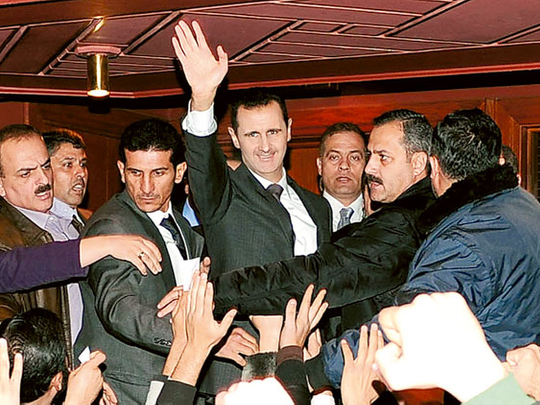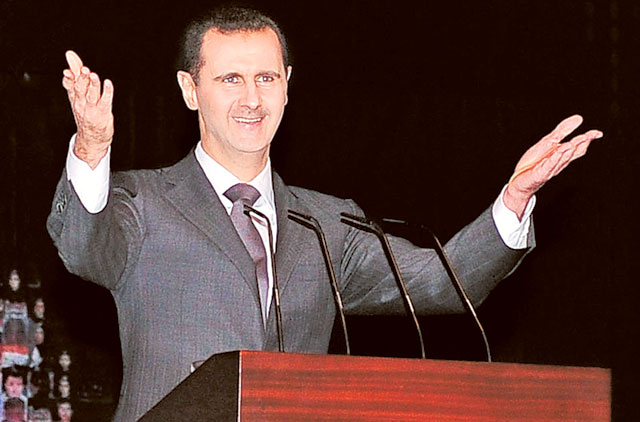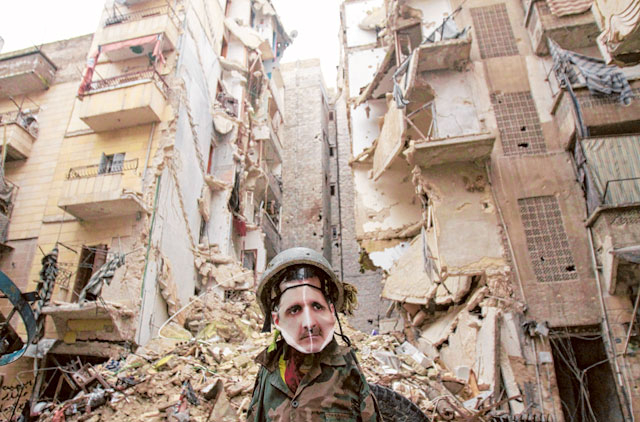
Damascus: Syrian President Bashar Al Assad, in a rare speech on Saturday, proposed a plan to resolve the country’s crisis which includes a national reconciliation conference, the formation of a new government and an amnesty.
Outlining a reconciliation plan aimed at resolving Syria’s 21-month conflict which according to the UN has claimed more than 60,000 lives, Al Assad called on foreign powers to end their support for rebels seeking to topple his regime.
“The first stage of a political solution would require that regional powers stop funding terrorists. The second stage will be calling a government conference on a national dialogue,” Al Assad said in a speech at the opera house in Damascus.
The third stage, he said, would be the formation of a new government and declaration of an amnesty.
Al Assad denounced the opposition as “puppets of the West” and said Syria wanted to negotiate with the “master not the servants”. He said the reconciliation conference would exclude “those who have betrayed Syria”.
The government would soon spell out details of the transition plan, he said, while stressing that any resolution must be purely Syrian and ratified by referendum, including a charter drafted at the national dialogue conference.
After the referendum, new parliamentary polls would be held, followed by the creation of a new government, said Al Assad.
But he stressed for all this to happen “there must be agreement at the national dialogue conference.”
“Just because we have not found a partner, it does not mean we are not interested in a political solution, but that we did not find a partner,” he told the audience.
He said the conflict was not one between the government and the opposition but between the “nation and its enemies.”
“The one thing that is sure that those who we face today are those who carry the Al Qaida ideology,” Al Assad said, repeating previous assertions that “foreign terrorists” are behind the uprising in his country.
Al Assad last spoke in public on June 3 when he addressed parliament in Damascus. In November he gave an interview to Russian television in which he dismissed suggestions he would go into exile, saying he would “live and die” in Syria.
Since then he has not commented on the conflict which has ravaged his country, with vast swathes of northern Syria now in the hands of rebels, who also control an arc of towns on the eastern outskirts of Damascus and are locked in battle for control of major cities, including Homs and Aleppo.
Western powers have insisted on President Al Assad’s departure before the formation of a new government of national unity while Russia insisted that the decision be left to the “Syrian people”.
During his latest visit to Damascus, UN-Arab League peace envoy Lakhdar Brahimi had mentioned a plan, based on a Geneva declaration, that talked of a ceasefire, forming a government and holding parliamentary and presidential polls.
The Geneva plan put forward last June would see a transitional government in place, but it does not refer to Al Assad going — a key demand of the opposition.













